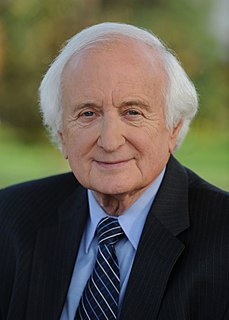A Quote by Steven Rattner
Well, maybe not death panels, exactly, but unless we start allocating health-care resources more prudently – rationing, by its proper name – the exploding cost of Medicare will swamp the federal budget.
Related Quotes
One such troubling provision is a tax increase to pay for the $635 billion included in the budget for health care 'reserve funds.' Health care reform is desperately needed in America, but I'm concerned that $635 billion will be a down payment on socialized medicine, causing the impersonal rationing of health care and destroying the doctor-patient relationship.
Conservatives are telling elected leaders that expansion of Medicaid comes at a moral - or more overtly, a political - price. At what price are they willing to go back on years of proclaiming 'socialized medicine' as the slippery slope to 'rationing of health care,' 'death panels' and other claims far too gruesome to mention in polite company?
We ought to follow through on an idea that was first proposed by President Clinton to allow people over the age of 55 who are not eligible for Medicare into the Medicare system, at cost, and below cost for those who can't afford it. That takes care of a significant number of the people who don't have health insurance.
There is no reason why anyone in this country should be lacking health care when America has the resources right now. It would not cost much more than what we are paying right now. As a matter of fact, Americans are paying for a universal standard of care. They are just not getting it because it is all about corporations making a profit. It is not about people. Support Medicare for all.
Reagan cut through irrational federal regulations to allow children to live with their parents, where they could receive care that would cost the taxpayer one-sixth as much as institutional care. By contrast, Obamacare has added thousands of pages of bureaucratic regulations and will cost the federal government untold billions.


































